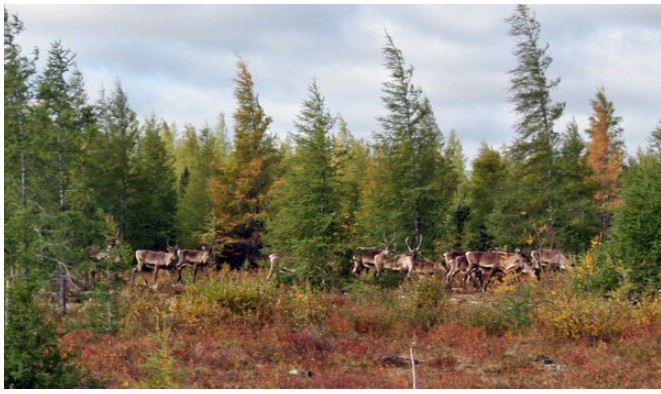A caribou management board is hoping governments will sign onto a new agreement allowing them to continue operations for another decade.
The Beverly and Qamanirjuaq Caribou Management Board (BQCMB) held several meetings in the past few weeks where they presented the framework of their new management agreement.
The Beverly and Qamanirjuaq are two caribou herds found across northern Saskatchewan and Manitoba, and in the Northwest and Nunavut territories. The BQCMB is tasked with their protection.
The caribou board will be lobbying the provinces of Saskatchewan and Manitoba, the federal government, and the Northwest and Nunavit territories to sign on to the agreement and provide what they say is “essential” funding.
“It is for the people that this Board must continue its work,” BQCMB Chair Earl Evans said in a media release sent out by the management board. “Across the range, Cree, Dene, Inuit and Metis communities have relied on these herds to meet their nutritional, cultural, and spiritual needs for millennia. We need to ensure they can continue to rely on them, today and in the future.”
The board says the new agreement will carry them through to 2032 and will make Indigenous governments equal partners.
“We need to strengthen the BQCMB’s ability to play a strong, effective role in conservation and management of the two caribou herds for the future, and we need to more successfully engage Indigenous communities, youth and Elders,” added incoming Executive Director Tina Giroux-Robillard in the release.
The management board has been protecting and monitoring the Beverly and Qamanirjuaq herds since 1982. According to their website, the herds saw a steady decrease in numbers of around 3 percent per year from 2011-2018.
“The BQCMB has been under-funded for many years,” said Giroux-Robillard. “This new agreement is an opportunity to build on what the Board has done for 40 years while making Indigenous governments equal, contributing partners in its management.”
The board pointed to the Bathurst caribou herd as a reason for concern. The Bathurst herd numbers dropped from over 450,000 in the mid-1980s to less than 8,000 today.
“We don’t want to see the same thing happen to the Beverly or Qamanirjuaq herds,” said Evans. “Too many people depend on them.”
As the board lobbies governments to sign on to the agreement and help out with funding they are confident the agreements will come into place.
“(BQCMB) expects the modernized agreement will be embraced in the same spirit of cooperation and reconciliation in which it is being offered, and which has made the BQCMB a model of co-management since 1982,” read the release.
(Photo courtesy of the BQCMB website; arctic-caribou.com)
